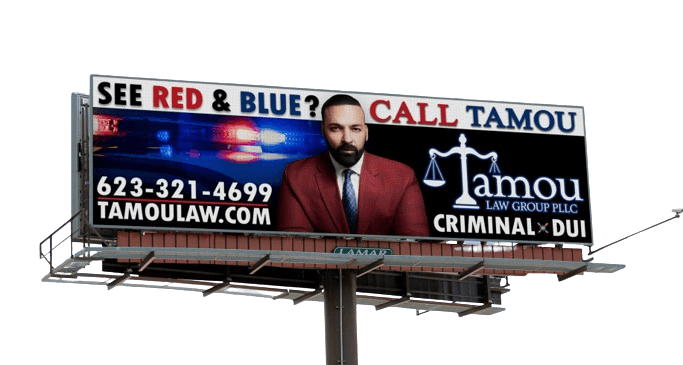Should I Consent to the Breath Test During a DUI Stop in Scottsdale?
It is your right to refuse a preliminary breath test (PBT) during a DUI stop in Scottsdale. Denying an officer a preliminary breath test for a Scottsdale DUI will likely lead to an immediate arrest.For post-arrest breath tests, Arizona’s implied consent law requires compliance. Refusal at this stage triggers automatic license suspension and other penalties, which we’ll explore later in this article. Understanding these distinctions is critical to protecting your rights while avoiding harsher consequences.
These roadside tests are voluntary, and declining them will not result in immediate penalties. However, refusal could lead to consequences, such as the officer relying on other evidence, escalating the investigation, or proceeding with an arrest.
If you’ve been stopped for a suspected DUI in Scottsdale, Arizona, one of the first questions you might ask yourself is whether you should consent to the breath test during a DUI. Scottsdale’s DUI laws are stringent, and what you do at each stage of the traffic stop can significantly impact your case.
What Is a DUI Breath Test in Scottsdale?
A DUI breath test is a chemical test that estimates your blood alcohol concentration (BAC) by analyzing the alcohol content in your breath. Arizona law enforcement uses breath tests to determine whether drivers are legally impaired under the following limits:
- 0.08% for most drivers.
- 0.04% for commercial drivers (CDL).
- 0.00% for drivers under 21, under Arizona’s zero-tolerance policy.
Breath tests may be administered at two points:
- Roadside Breath Test: A portable breathalyzer used to collect preliminary evidence.
- Stationary Breath Test: A more accurate test administered post-arrest at a police station.
But should you consent to these tests for a Scottsdale DUI? Let’s break it down step by step.
later in this article. Understanding these distinctions is critical to protecting your rights while avoiding harsher consequences.
Hypothetical DUI Scenario: The Breath Test Request for a Scottsdale DUI
Step 1: Scottsdale DUI Traffic Stop
You’re driving down Scottsdale Road late at night after dinner with friends. While changing lanes, you forget to signal, catching the attention of a Scottsdale police officer. The officer pulls you over. The officer approaches your window and notices the faint smell of alcohol. They ask, “Have you been drinking tonight?” You reply that you had one drink with dinner. This admission, coupled with the traffic violation, gives the officer reasonable suspicion to proceed with a DUI investigation. The officer then proceeds to ask for your license and registration, runs a check, and comes back and asks you to step out of the vehicle for purposes establishing that you are okay to drive. After conducting Field Sobriety Tests (FST), The officer asks you to take a preliminary breath test (PBT) using a handheld device. This test is voluntary. You remember reading that you don’t have to take this test and politely decline, knowing that Arizona law does not impose penalties for refusing a roadside PBT. Refusing the PBT prompts the officer to ask you to perform field sobriety tests, which we’ll cover in detail in another article of this series, “What Happens If I Refuse Field Sobriety Tests in Scottsdale?”
Step 2: Arrest and Post-Arrest Breath Test Request for Scottsdale DUI
The officer claims your performance on the field sobriety tests was unsatisfactory and arrests you for suspected DUI. After the arrest, you’re taken to the Scottsdale Police Department and asked to take a post-arrest breath test on a stationary breathalyzer.
Under Arizona’s implied consent law (ARS § 28-1321), refusing this test carries automatic penalties, including a 12-month license suspension for a first refusal. Knowing this, you agree to the test.
- Next Steps: If the officer instead requests a blood test instead of a breath test, check out the second post in this series, “Should I Consent to a Blood Test for a DUI in Scottsdale?”
Related Scottsdale DUI Investigation Steps
Your decision to consent or refuse the breath test is only part of the larger DUI investigation process. Let’s briefly look at how this ties into the other stages:
- Field Sobriety Tests: Refusal to perform these tests may strengthen the officer’s suspicion of impairment but won’t result in immediate penalties. Learn more in “What Happens If I Refuse Field Sobriety Tests in Scottsdale?”
- Blood Tests: Sometimes, officers may request a blood test instead of a breath test for greater accuracy. Understand your rights in “Should I Consent to a Blood Test for a DUI in Scottsdale?”
- Consequences of a DUI Arrest: If arrested, you might wonder about jail time and penalties. These are addressed in “Do I Have to Go to Jail for a DUI in Scottsdale?”
- Defending Your Case: Finally, explore how to fight a DUI charge in the last blog of this series, “How Can I Beat a DUI Charge in Scottsdale?”
Defense Strategies for Breath Test Refusal in Scottsdale DUI
If you refuse a breath test and face administrative or legal consequences, a skilled Scottsdale DUI attorney from Tamou Law Group can help build a defense. Possible strategies include:
- Illegal Traffic Stop: Evidence from an unlawful stop may be inadmissible.
- Improper Testing Procedures: Breath tests must follow strict protocols to ensure accuracy. Any deviation can weaken the state’s case.
- Medical Conditions: Certain conditions, such as GERD, can cause inaccurate BAC readings.
- Calibration Issues with Breathalyzer: The Scottsdale Police Department has a duty to make sure that the breathalyzer machine is calibrated and up to date with certifications. A Scottsdale DUI Lawyer from Tamou Law Group can
- Negotiation with Scottsdale Prosecutors: When challenges occur after giving consent to the breath test during a DUI, a skilled Scottsdale Criminal Defense Lawyer can initiate negotiations with Scottsdale prosecutors in an effort to have your Scottsdale DUI charges reduced. If you’re asking, “Can a Scottsdale DUI Lawyer Get Your Charges Reduced?”, click on the link to learn more about how Tamou Law Group employs negotiation strategies to achieve this goal.
What Happens If You Refuse the Post-Arrest Breath Test in Scottsdale?
If you refuse the post-arrest breath test, you’ll face:
- Immediate License Suspension
- Your license is suspended for 12 months for the first refusal and 24 months for a second refusal within seven years.
- Forced Testing
- The officer may obtain a warrant, allowing them to conduct a forced breath or blood test.
- Evidence of Refusal in Court
- The prosecution can use your refusal to suggest you were attempting to hide your level of intoxication.
These consequences make it critical to weigh your options carefully.
Conclusion
So, should you consent to the breath test during a DUI stop in Scottsdale? The answer depends on the situation. You’re not required to take a roadside PBT, but refusal could lead to further testing or an arrest. Once arrested, Arizona’s implied consent law requires you to take a breath test, with refusal carrying significant penalties.
Understanding your rights at each step is essential to protecting yourself. If you’re facing DUI charges, the experienced attorneys at Tamou Law Group PLLC can provide the guidance and defense you need to navigate Arizona’s tough DUI laws.
If you’re facing DUI charges in Scottsdale, the experienced Scottsdale Criminal Defense Lawyer can help you navigate the complexities of the charges you face. By understanding Arizona’s stringent DUI laws and employing tailored defense strategies, we aim to protect your rights and achieve the best possible outcome for your case. Contact us today to discuss your options and take the first step toward safeguarding your future.

Tamou Law Group
Scottsdale Office
9375 E Shea Blvd #100
Scottsdale, AZ 85260
Phone: 623-321-4699






![The Top 3 Probation Violation Lawyers in Phoenix, AZ [2026]](https://tamoulawgroup.com/wp-content/uploads/2025/11/phoenix-probation-violation-lawyer-300x300.png)